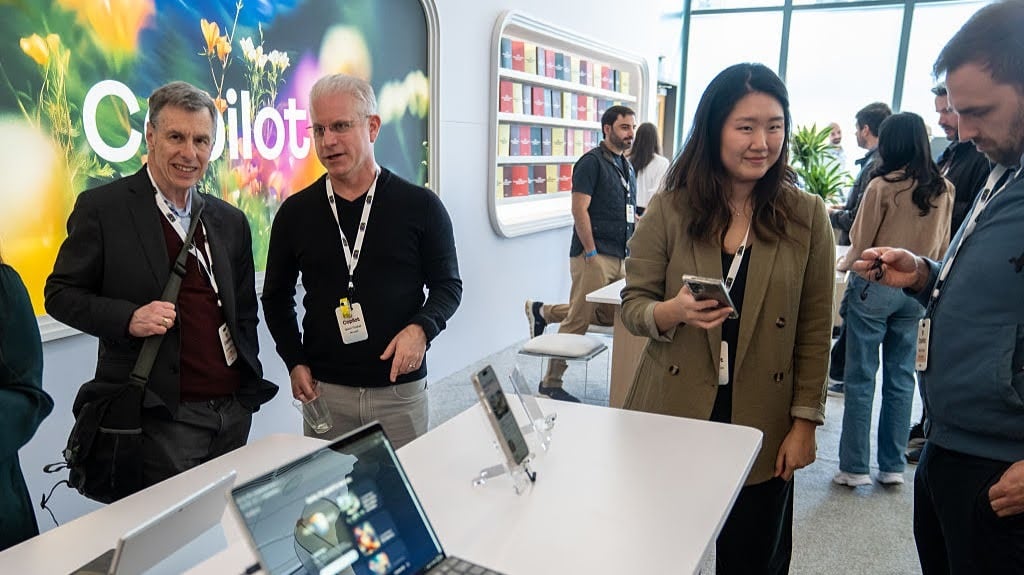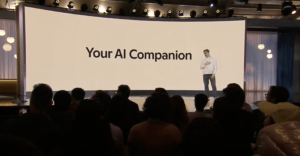Exploring Microsoft’s Potential in the AI Race: My Top Copilot Features to Test

Microsoft Celebrates 50 Years with New Copilot Features
New Features and Enhancements
In celebration of its 50th anniversary, Microsoft has introduced several exciting updates to its Copilot AI, enhancing its capabilities in vision, shopping, research, and podcasting. A key highlight is the AI’s ability to remember user interactions, ultimately aiming to offer a personalized experience referred to as "Your AI Companion."
These enhancements primarily target consumer editions of Copilot, launching first on the web version, followed by iOS and Android applications. Interestingly, some new functionalities appear to be missing from the Windows app so far, despite the expectation of more updates for the Microsoft 365 enterprise version of Copilot at the upcoming Build conference.
Microsoft’s Vision of Accessible AI
During the announcement, Microsoft CEO Satya Nadella emphasized the company’s commitment to "democratizing" AI, akin to its efforts with personal computers. He showcased a demonstration of "vibe coding" with GitHub Copilot, which quickly reproduced the BASIC Interpreter for the Altair computer. Nadella stated, "Microsoft began as a tools company 50 years ago and has transitioned into a platform where anyone can be a developer." Future developer tools, such as agent mode and Copilot code review, are also on the horizon.
Mustafa Suleyman, Microsoft’s AI CEO, shared a forward-looking vision where everyone essentially possesses "an expert in their pocket." According to him, this creates limitless possibilities as Copilot will serve various roles—from a teacher to a project manager—enabling users to leverage a wide range of capabilities.
Copilot Features in Real-Life Scenarios
One of the standout features includes creating "magazine-style cards" that help users plan personal events, like birthday parties. On a practical level, Copilot can execute tasks such as purchasing tickets and making reservations across numerous partnered platforms, including Booking.com, OpenTable, and more. While some operations will happen seamlessly in the background, users will still need to interact with captcha systems and verify credit card usage, addressing concerns about complete reliance on technology.
Another intriguing addition is the Deep Research feature, which enables users to synthesize information from vast online sources and documents, an aspect that’s recently garnered attention in various AI platforms. Coupled with this, Copilot’s search within Bing will now allow cross-referencing, yielding more comprehensive results replete with source citations. Users can organize gathered data on a customizable "canvas," facilitating further documentation as necessary.
Mobile and Windows Enhancements
The newly launched Vision feature on both mobile and Windows applications was initially introduced on the web. The Copilot mobile app can now analyze real-time video and images, assisting users by identifying plants or suggesting office decor improvements. In the Windows version, Copilot can read the screen and interact with its content, performing tasks like file organization and providing information retrieval guidance. Exciting demonstrations showcased Copilot educating users on how to make specific edits in image software.
Suleyman also hinted at the Microsoft 365 Copilot receiving new Researcher and Analyst agents, which will utilize novel resonating models. Although not fully demonstrated yet, further insights are expected at the next Build conference.
Your AI Companion: A Personalized Experience
Looking towards the future, Microsoft’s ambition is to transform Copilot into "Your AI Companion." This system aims to understand intricacies about a user’s life, including personal preferences, family names, and ongoing projects.
Suleyman mentioned the potential for each user to have a unique Copilot, which can adapt its tone and style based on individual interaction. Importantly, users will have the option to opt-in or out of this personalization and retain control over what information is stored.
In an interesting twist, users will be able to customize how Copilot appears, even choosing styles reminiscent of old software characters like "Clippy." While Suleyman recognized the lengthy journey ahead to achieve this vision, it marks an exciting direction for Microsoft’s AI developments.
This vision isn’t exclusively Microsoft’s; other companies are exploring similar features. However, Microsoft’s existing ecosystem of Windows and Microsoft 365 tools positions it uniquely to integrate these innovative Copilot functionalities, making the overall experience more seamless and user-friendly.






